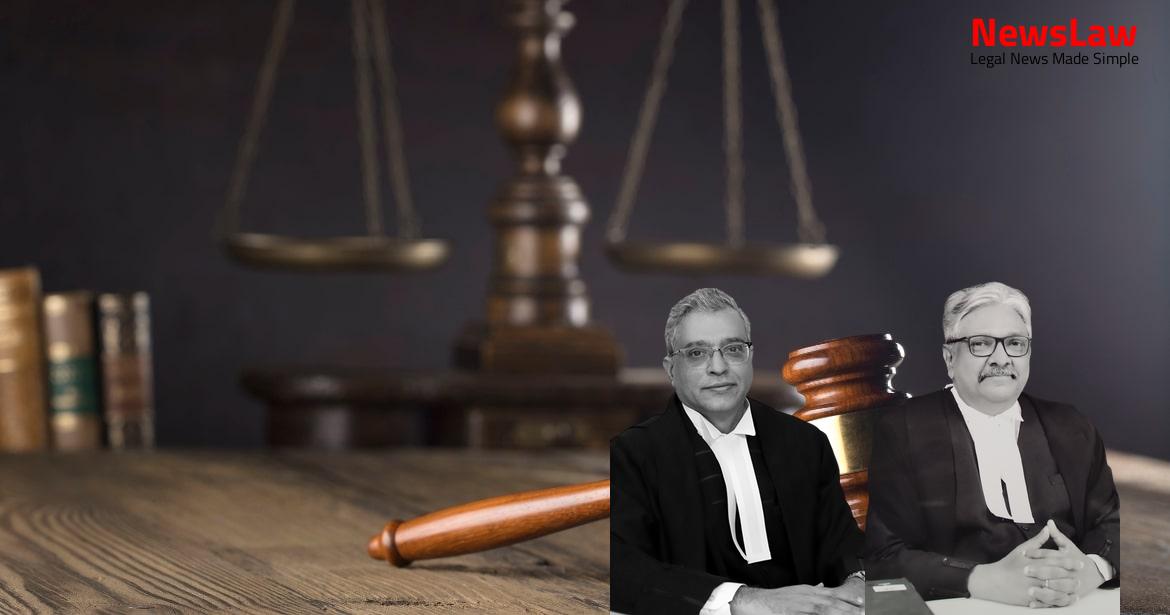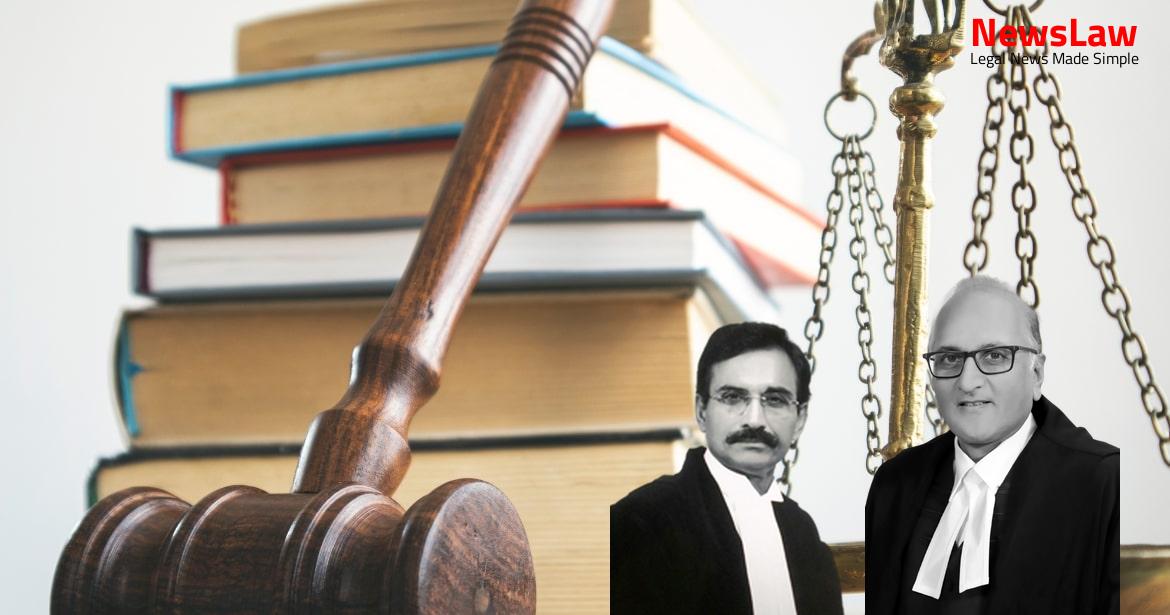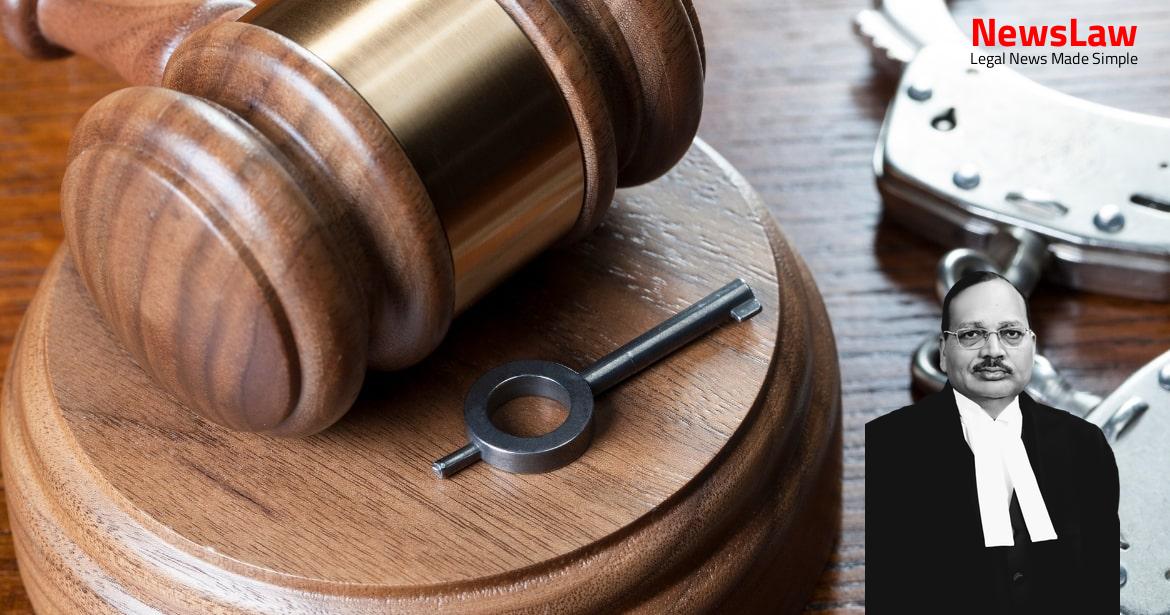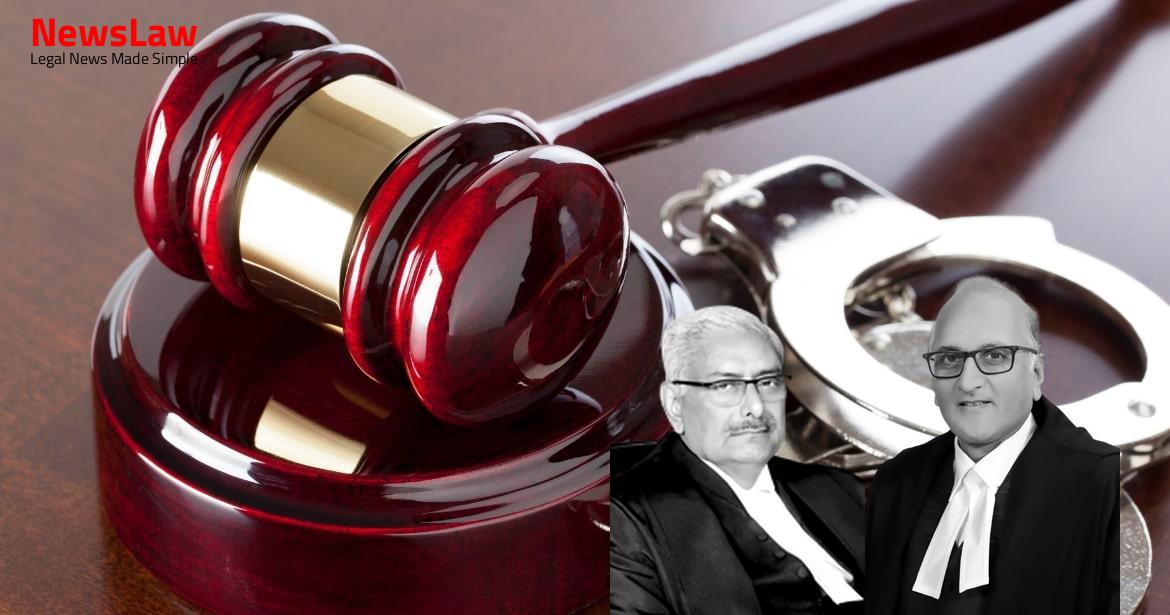Delve into the detailed legal analysis of a significant court case where the focus is on the court’s scrutiny of a decision-making process regarding an exam answer key. The court’s examination of the principles of fairness and judicial review brings to the forefront the complexities of upholding justice in administrative matters. Stay tuned to unravel the legal intricacies at play in this thought-provoking case.
Facts
- In the judgment, it was found that the correct answer for question No. 46 was Option B, involving Shri Kailash Yadav.
- Shri Kailash Yadav had passed away before the examination date, rendering Option B incorrect as the answer.
- The respondent in the case scored 86 marks, falling short of the OBC category cutoff of 87 marks by one point.
- The appellant Commission took a decision on March 29, 2016, regarding objections raised by candidates against the answer keys of the examination.
- The respondent filed a writ petition seeking a writ of Mandamus to award him the mark for question No. 46 and prepare a fresh select list.
- The Division Bench directed the appellant to decide whether to delete question no. 46 or award marks to the respondent.
- If the respondent merited with the awarded marks, further appropriate action was to be taken.
- All options for question no. 46 were incorrect due to the demise of the minister on the date of the selection test.
- The Division Bench found it improper to award marks to those who did not answer the question.
- The answer marking Shri Kailash Yadav as Minister was incorrect.
Also Read: Judicial Analysis on Back Wages in Employee Caste Verification Case
Arguments
- The appellant argues that the view taken by the appellant Commission is not palpably perverse.
- The selection process began in 2015 and results were published in 2016.
- The respondent’s case is different as they selected the incorrect answer option ‘A.’
- The respondent, belonging to the OBC category, scored 86 marks, just one mark below the cut off.
- The appellant’s counsel referenced the Kanpur University case and argued against deleting question no. 46.
- The respondent’s counsel supports reworking the selection process and adding one mark for question no. 46.
- Candidates who did not attempt to answer question no. 46 should not be penalized.
- Deleting question no. 46 could cause serious prejudice according to the appellant.
- The High Court dismissed the writ petition due to the submission made by the appellant as the grievance of the petitioners did not survive.
- The appellant referred to the case of Guru Nanak Dev University v. Saumil Garg and Others (2005) 13 SCC 749 to support their argument.
- In the mentioned case, it was decided to give one mark to all candidates for a particular question.
- The court in the Guru Nanak Dev University case stated that it is unfair to award marks to a student who did not attempt the questions.
- The appellant argued that in the present case, the principle from the Guru Nanak Dev University case should apply, and the respondent should not deny the mark the appellant is entitled to.
Also Read: Interpretation of Suspension Rules in Employment Case
Analysis
- The Commission made a decision based on the circumstances where none of the given options were correct on the date of the examination.
- Option ‘B’ would have been the correct answer for a specific question, but due to the untimely death of the minister, it became incorrect.
- A distinction was drawn by the Commission between categories, which was not deemed palpably arbitrary.
- The Court’s role in judicial review is to supervise rather than act as an appellate body.
- The challenge to the decision-making process must be evaluated with relevant inputs.
- The selection process began in 2015, and the respondent represented candidates who answered incorrectly.
- The appellant has made a case for interference in the given circumstances.
- The counsel for the appellant commission argued that one mark is made available to all candidates across the Board.
- The appellant clarifies that no candidate, including the respondent, who provided a wrong answer other than option B, has been given one mark.
Also Read: Legal Analysis of Assignment and Ratification in Property Law
Decision
- No orders as to costs.
- Appeal is allowed and the impugned judgment stands set aside.
Case Title: UTTAR PRADESH SUBORDINATE SERVICE SELECTION COMMISSION Vs. BRIJENDRA PRATAP SINGH (2021 INSC 892)
Case Number: C.A. No.-007720-007720 / 2021



